August 23, 2017
August 17, 2017
How workplace design shapes and reflects organisational hierarchies
by Angela Love • Comment, Facilities management, Workplace design
 The roots of the open plan office can be traced back to the 1960s when post-capitalism was beginning to emerge as a political and intellectual movement. The social and political upheaval that followed World War Two and the emphasis on the autonomous, motivated and engaged worker combined to inspire designers and architects to develop a new and more “modern” way of working. A mode of work characterised by an increased emphasis on social relations and flattened hierarchies. The open plan office was heralded as the ‘office of the future’; a progressive, transformative and near utopian design concept which would enable its occupants to thrive and succeed in a more socialist world. Yet the proponents of the open plan do not appear to have been fulfilled in large corporate businesses in the UK. I’d like to suggest that this failure is not a design fault but rather a problem caused by a clash of ideologies. Upon closer inspection, it appears that these larger corporations have not fully been able to shift into the social-democratic model of collaborative, open working styles.
The roots of the open plan office can be traced back to the 1960s when post-capitalism was beginning to emerge as a political and intellectual movement. The social and political upheaval that followed World War Two and the emphasis on the autonomous, motivated and engaged worker combined to inspire designers and architects to develop a new and more “modern” way of working. A mode of work characterised by an increased emphasis on social relations and flattened hierarchies. The open plan office was heralded as the ‘office of the future’; a progressive, transformative and near utopian design concept which would enable its occupants to thrive and succeed in a more socialist world. Yet the proponents of the open plan do not appear to have been fulfilled in large corporate businesses in the UK. I’d like to suggest that this failure is not a design fault but rather a problem caused by a clash of ideologies. Upon closer inspection, it appears that these larger corporations have not fully been able to shift into the social-democratic model of collaborative, open working styles.
August 14, 2017
Seven ways in which flexible working is making our lives more rigid
by Mark Eltringham • Comment, Flexible working, Technology
 One of the main reasons why books such as Catch 22 and 1984 make such mediocre films, is because celluloid struggles to capture the books’ preoccupation with the ways in which language can be used to subvert meaning and rationality. We don’t always have to lean on the bookcase to see how this works. It’s been evident recently in the coverage of the massive growth of zero hours working worldwide, although they have now been banned in New Zealand. There are now up to 1.5 million people on zero hours contracts in the UK and the adjective most commonly associated with the practice in the media coverage has been ‘flexible’, despite the fact that from the perspective of the majority of the people working on such contracts they are anything but. It’s yet another example of the subversion in our use of the term flexible working. It’s Doublespeak; an expression which means something completely different to, or indeed the opposite of, the thing it is describing.
One of the main reasons why books such as Catch 22 and 1984 make such mediocre films, is because celluloid struggles to capture the books’ preoccupation with the ways in which language can be used to subvert meaning and rationality. We don’t always have to lean on the bookcase to see how this works. It’s been evident recently in the coverage of the massive growth of zero hours working worldwide, although they have now been banned in New Zealand. There are now up to 1.5 million people on zero hours contracts in the UK and the adjective most commonly associated with the practice in the media coverage has been ‘flexible’, despite the fact that from the perspective of the majority of the people working on such contracts they are anything but. It’s yet another example of the subversion in our use of the term flexible working. It’s Doublespeak; an expression which means something completely different to, or indeed the opposite of, the thing it is describing.
August 11, 2017
Reducing the risk of personal gambling becoming a corporate fraud issue
by Andrew Durant • Comment, Workplace
 A recently leaked confidential report for the betting industry says that, if introduced, the new rules to encourage responsible gambling in the UK would lead to closure of half of the country’s bookmakers and the loss of around 20,000 jobs. The report follows widespread concerns about the controversial use, and misuse, of Fixed Odds Betting Terminals (FOBTs) in betting shops which, have been shown to be one of the major causes for problem gambling behaviour (due to their addictive play). They allow customers to place wagers as high as £100 every twenty seconds. With gambling becoming ever more accessible through the spread of FOBTs, the growing number of online betting platforms and access to casinos on the high street, the pressure of funding a gambling habit has become one of the main reasons why people commit corporate fraud.
A recently leaked confidential report for the betting industry says that, if introduced, the new rules to encourage responsible gambling in the UK would lead to closure of half of the country’s bookmakers and the loss of around 20,000 jobs. The report follows widespread concerns about the controversial use, and misuse, of Fixed Odds Betting Terminals (FOBTs) in betting shops which, have been shown to be one of the major causes for problem gambling behaviour (due to their addictive play). They allow customers to place wagers as high as £100 every twenty seconds. With gambling becoming ever more accessible through the spread of FOBTs, the growing number of online betting platforms and access to casinos on the high street, the pressure of funding a gambling habit has become one of the main reasons why people commit corporate fraud.
August 2, 2017
Whatever you might be told, this is not the Office of the Future
by Mark Eltringham • Comment, Facilities management, Technology, Workplace design
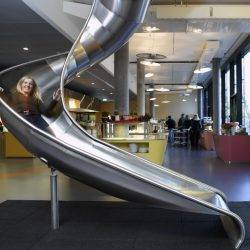 It seems like we don’t have to wait more than a few days at a time before some or other organisation is making its own prognoses about how we will be working in the future, especially at this time of year. The thing these reports about the office of the future all share in common, other than a standardised variant of a title and a common lexicon of agility, empowerment, collaboration and connectivity, is a narrow focus based on several of their key narratives and assumptions. While these are rarely false per se, and often offer some insights of variable worth, they also usually exhibit a desire to look at only one part of the elephant. The more serious reports invariably make excellent points and identify key trends, it has to be said. However, across them there are routine flaws in their thinking that can lead them to make narrow and sometimes incorrect assumptions and so draw similarly flawed conclusions. Here are just a few.
It seems like we don’t have to wait more than a few days at a time before some or other organisation is making its own prognoses about how we will be working in the future, especially at this time of year. The thing these reports about the office of the future all share in common, other than a standardised variant of a title and a common lexicon of agility, empowerment, collaboration and connectivity, is a narrow focus based on several of their key narratives and assumptions. While these are rarely false per se, and often offer some insights of variable worth, they also usually exhibit a desire to look at only one part of the elephant. The more serious reports invariably make excellent points and identify key trends, it has to be said. However, across them there are routine flaws in their thinking that can lead them to make narrow and sometimes incorrect assumptions and so draw similarly flawed conclusions. Here are just a few.
July 31, 2017
It is time to take action to support older people’s health at work
by Patrick Thomson • Comment, Facilities management, Flexible working, News, Wellbeing, Workplace
 Poor health is one of the biggest factors causing people to leave work earlier than they would like to; yet poor health isn’t an inevitable part of ageing. We know that health conditions can become more likely as we get older. While some health conditions are not any more likely the older you get, others certainly are. Musculoskeletal conditions (affecting joints, bones and muscles) and heart and circulatory conditions increases significantly as we age. The fact that 14 percent of all 50-64 year olds have a musculoskeletal condition, and that musculoskeletal conditions alone account for 30 million days of sickness absence each year, is significant. People are by impacted by health conditions in different ways, and you can have a dramatically different outcome depending on how early you spot and take action to address a health issue at work. Sometimes slow-onset physical conditions such as musculoskeletal conditions, might start off mildly, but gradually lead to a painful exit from work. Because they change slowly they are more difficult to identify and there isn’t always a clear trigger point to do something about them.
Poor health is one of the biggest factors causing people to leave work earlier than they would like to; yet poor health isn’t an inevitable part of ageing. We know that health conditions can become more likely as we get older. While some health conditions are not any more likely the older you get, others certainly are. Musculoskeletal conditions (affecting joints, bones and muscles) and heart and circulatory conditions increases significantly as we age. The fact that 14 percent of all 50-64 year olds have a musculoskeletal condition, and that musculoskeletal conditions alone account for 30 million days of sickness absence each year, is significant. People are by impacted by health conditions in different ways, and you can have a dramatically different outcome depending on how early you spot and take action to address a health issue at work. Sometimes slow-onset physical conditions such as musculoskeletal conditions, might start off mildly, but gradually lead to a painful exit from work. Because they change slowly they are more difficult to identify and there isn’t always a clear trigger point to do something about them.
July 24, 2017
Employers have a growing responsibility to provide staff with cycling facilities
by Peter Ferrari • Cities, Comment, Property, Wellbeing
 This month, the British Council for Offices (BCO) launched a new report looking at the importance of offering better workplace facilities for cyclists in order to support the Government’s ambitious cycling growth targets. The Department for Transport’s £1.2bn cycling and walking investment strategy, published in April, aims to make cycling “the norm” by 2040. It plans to do this by improving cycling infrastructure and expanding cycle routes between city centres, local communities and key employment and retail sites, making improvements to 200 sections of roads for cyclists and providing funding for councils to invest in cycling schemes. In addition, city councils across the UK are making improvements to their cycling infrastructure. Last year, Sadiq Khan announced plans to spend £770m on cycling initiatives in London over the course of his term, in order to make riding a bike “the safe and obvious” transport choice for all Londoners. Birmingham City Council has pledged to invest more than £11m in creating two-way cycle paths, resurfacing canal towpaths, and even offering free bikes, with the aim of doubling the number of trips in the city made by bike from 5 percent to 10 percent by 2033, in order to make the city healthier, greener, safer and less congested.
This month, the British Council for Offices (BCO) launched a new report looking at the importance of offering better workplace facilities for cyclists in order to support the Government’s ambitious cycling growth targets. The Department for Transport’s £1.2bn cycling and walking investment strategy, published in April, aims to make cycling “the norm” by 2040. It plans to do this by improving cycling infrastructure and expanding cycle routes between city centres, local communities and key employment and retail sites, making improvements to 200 sections of roads for cyclists and providing funding for councils to invest in cycling schemes. In addition, city councils across the UK are making improvements to their cycling infrastructure. Last year, Sadiq Khan announced plans to spend £770m on cycling initiatives in London over the course of his term, in order to make riding a bike “the safe and obvious” transport choice for all Londoners. Birmingham City Council has pledged to invest more than £11m in creating two-way cycle paths, resurfacing canal towpaths, and even offering free bikes, with the aim of doubling the number of trips in the city made by bike from 5 percent to 10 percent by 2033, in order to make the city healthier, greener, safer and less congested.
July 13, 2017
What we may be missing about IBM’s decision on flexible working 0
by Gary Chandler • Comment, Flexible working, Property, Workplace design
 In May, the Wall Street Journal reported that IBM had announced that it was obliging a significant number of its staff to give up on remote working and instead move back to corporate offices, many of them regional hubs. Although we had been aware of the change in policy since February, the issue only went viral as a result of the WSJ story. Comparisons were quickly made with Yahoo’s poorly received decision to summon staff back to its corporate HQ in 2013 and commentators expressed dismay that such a major corporation would be willing to return to the command and control structures of a previous era, especially given its sector and track record of encouraging flexible working. What such commentary missed was a particular nuance of the story that might suggest this is more of a continuation of existing IBM policy than they have been given credit for.
In May, the Wall Street Journal reported that IBM had announced that it was obliging a significant number of its staff to give up on remote working and instead move back to corporate offices, many of them regional hubs. Although we had been aware of the change in policy since February, the issue only went viral as a result of the WSJ story. Comparisons were quickly made with Yahoo’s poorly received decision to summon staff back to its corporate HQ in 2013 and commentators expressed dismay that such a major corporation would be willing to return to the command and control structures of a previous era, especially given its sector and track record of encouraging flexible working. What such commentary missed was a particular nuance of the story that might suggest this is more of a continuation of existing IBM policy than they have been given credit for.
July 11, 2017
Creativity is the new productivity in the modern era of work and workplaces 0
by Serena Borghero • Comment, Facilities management, Workplace design
 Creativity is often thought of as a quality unique to artistic geniuses. When in reality, it is present in all of us, and something that can be enhanced and nurtured, given the right tools and environment. Creativity is the innate human ability to generate ideas, solve difficult problems and exploit new opportunities — it is the fuel for innovation. Many of today’s most pressing business problems require creative thinking to solve them, and creativity is an essential ingredient for business growth. However, 77 percent of CEOs name creativity as their company’s number one skill shortage (20th CEO survey, PWC, 2017). Being agile is critical in a world that is changing rapidly, with disruptive technology, globalisation and an increasingly complex landscape all playing a part. More than ever, supporting creativity at work is an essential part of driving value for both businesses and society. In days gone by, instead of focusing on their organisation’s creative output, most business leaders were obsessed with near-term goals such as productivity, efficiency, cost-cutting and reducing waste. But the landscape has shifted and creativity is emerging as an important dimension of productivity.
Creativity is often thought of as a quality unique to artistic geniuses. When in reality, it is present in all of us, and something that can be enhanced and nurtured, given the right tools and environment. Creativity is the innate human ability to generate ideas, solve difficult problems and exploit new opportunities — it is the fuel for innovation. Many of today’s most pressing business problems require creative thinking to solve them, and creativity is an essential ingredient for business growth. However, 77 percent of CEOs name creativity as their company’s number one skill shortage (20th CEO survey, PWC, 2017). Being agile is critical in a world that is changing rapidly, with disruptive technology, globalisation and an increasingly complex landscape all playing a part. More than ever, supporting creativity at work is an essential part of driving value for both businesses and society. In days gone by, instead of focusing on their organisation’s creative output, most business leaders were obsessed with near-term goals such as productivity, efficiency, cost-cutting and reducing waste. But the landscape has shifted and creativity is emerging as an important dimension of productivity.
June 30, 2017
Why using recyclable materials is no longer enough to protect the environment 0
by Michael Tyerman • Comment, Environment, Workplace design
 A few years ago, the most commonly recognised symbol of humankind’s impact on the environment was the image of a solitary polar bear, adrift on a rapidly shrinking ice floe. Google a term like ‘melting ice caps’ even now, and you’ll still derive a host of variations of the same meme. More recently a new and even more unpleasant series of symbols has emerged for a similarly environmentally catastrophic phenomenon, carried worldwide on the tide of social media. This time, they are not about the way we pollute the atmosphere but also the land and seas, particularly with plastic. Social media feeds are packed with images of the corpses of seabirds, their flesh rotted away to expose the amount of plastic they have consumed. This is the new face of environmental disaster. This is not just an issue that affects birds, however. Barely a day passes when we cannot see a new image of turtles malformed after getting caught up in plastic netting or six pack rings, whales beached after choking on dozens of discarded plastic bags they’ve mistaken for food, clogged waterways and oceans, piles of rubbish and beaches that consist in large part of plastic eroded to the size of sand grains. Most recently Sky ran a heartbreaking documentary about a whale that had died with a stomach full of plastic rubbish.
A few years ago, the most commonly recognised symbol of humankind’s impact on the environment was the image of a solitary polar bear, adrift on a rapidly shrinking ice floe. Google a term like ‘melting ice caps’ even now, and you’ll still derive a host of variations of the same meme. More recently a new and even more unpleasant series of symbols has emerged for a similarly environmentally catastrophic phenomenon, carried worldwide on the tide of social media. This time, they are not about the way we pollute the atmosphere but also the land and seas, particularly with plastic. Social media feeds are packed with images of the corpses of seabirds, their flesh rotted away to expose the amount of plastic they have consumed. This is the new face of environmental disaster. This is not just an issue that affects birds, however. Barely a day passes when we cannot see a new image of turtles malformed after getting caught up in plastic netting or six pack rings, whales beached after choking on dozens of discarded plastic bags they’ve mistaken for food, clogged waterways and oceans, piles of rubbish and beaches that consist in large part of plastic eroded to the size of sand grains. Most recently Sky ran a heartbreaking documentary about a whale that had died with a stomach full of plastic rubbish.
June 29, 2017
The onus is on employers to create working conditions that attract people 0
by Graham White • Comment, Facilities management, Wellbeing
 Staff absenteeism is one of the most costly issues facing employers in the modern workplace. Absenteeism is defined commonly as an unscheduled, deliberate or routine absence from the workplace by employees. According to a new study by the Centre for Economic and Business Research (CEBR), people who regularly take days off are costing the UK economy billions each year, with the toll set to rise considerably over the next decade and potentially rising to £26bn by 2030. The report also found that mental health issues are affecting 30-40 year olds who have to juggle various things such as home life, financial constraint and pressures from their day jobs and respective careers. Another recent study by AXA PPP healthcare found that over a third of employees living with a mental health condition (39 percent) are not open about it in the workplace. These findings highlight a clear disconnect between how employees are feeling and what their employers understand to be their state of mind.
Staff absenteeism is one of the most costly issues facing employers in the modern workplace. Absenteeism is defined commonly as an unscheduled, deliberate or routine absence from the workplace by employees. According to a new study by the Centre for Economic and Business Research (CEBR), people who regularly take days off are costing the UK economy billions each year, with the toll set to rise considerably over the next decade and potentially rising to £26bn by 2030. The report also found that mental health issues are affecting 30-40 year olds who have to juggle various things such as home life, financial constraint and pressures from their day jobs and respective careers. Another recent study by AXA PPP healthcare found that over a third of employees living with a mental health condition (39 percent) are not open about it in the workplace. These findings highlight a clear disconnect between how employees are feeling and what their employers understand to be their state of mind.









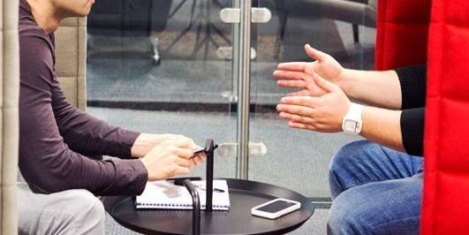


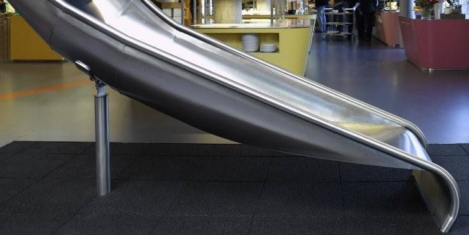

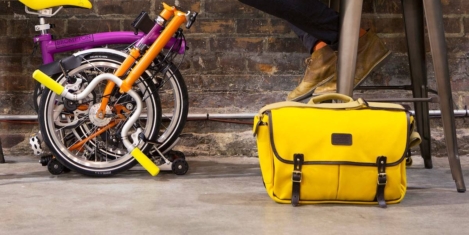

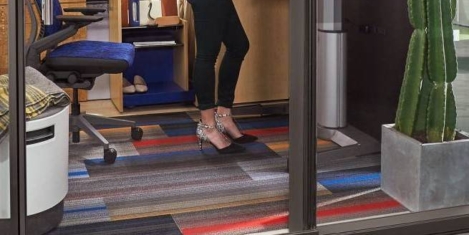











September 13, 2017
Banking sector will be ground zero for job losses from artificial intelligence and robotics
by Gordon Fletcher and David Kreps • AI, Comment, Technology
(more…)